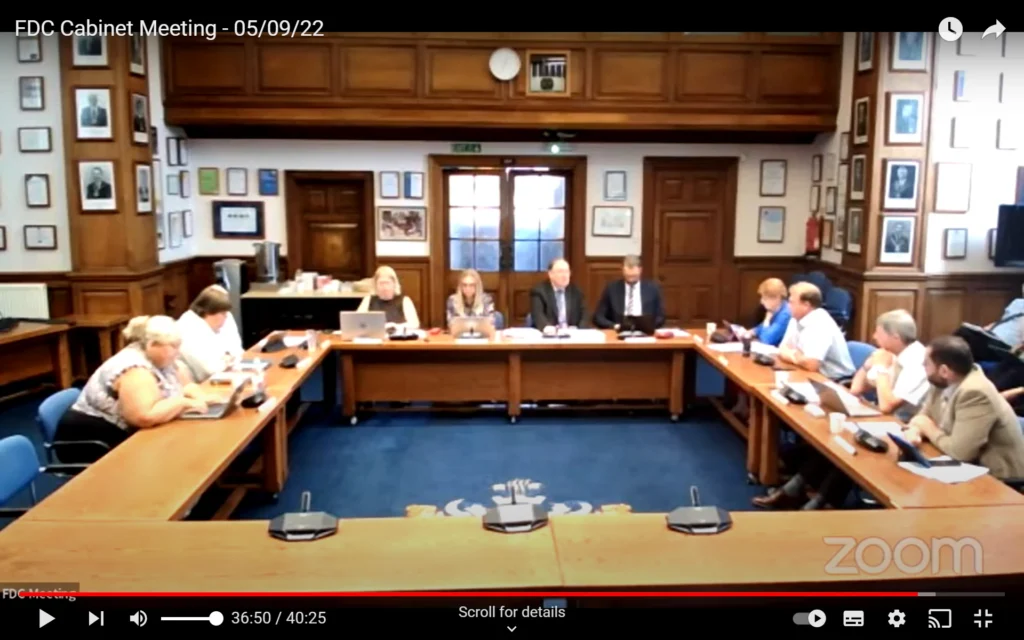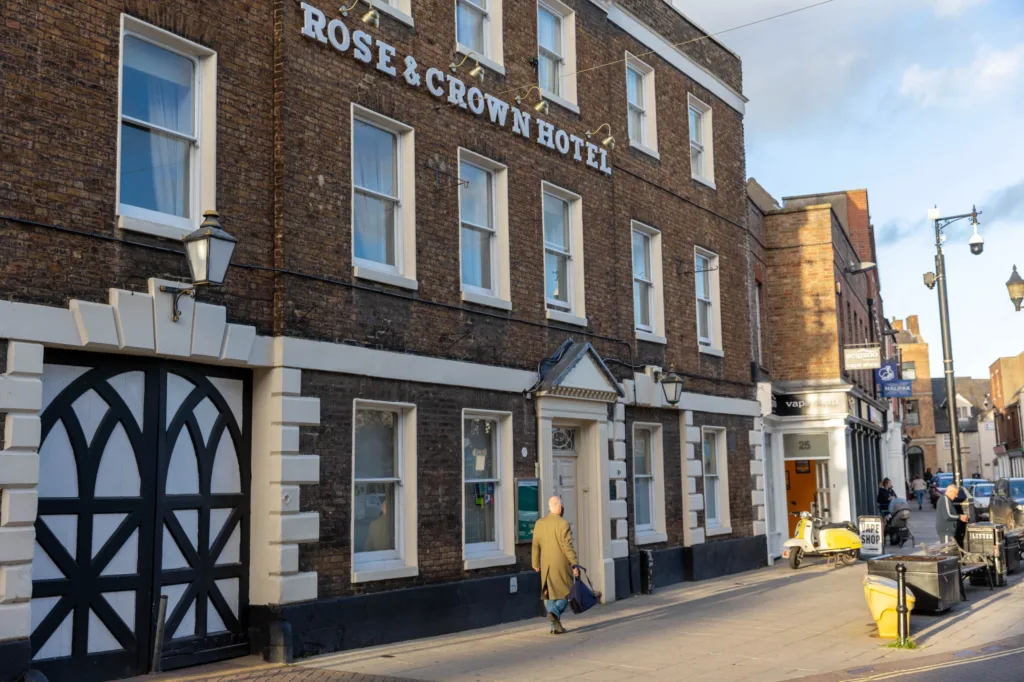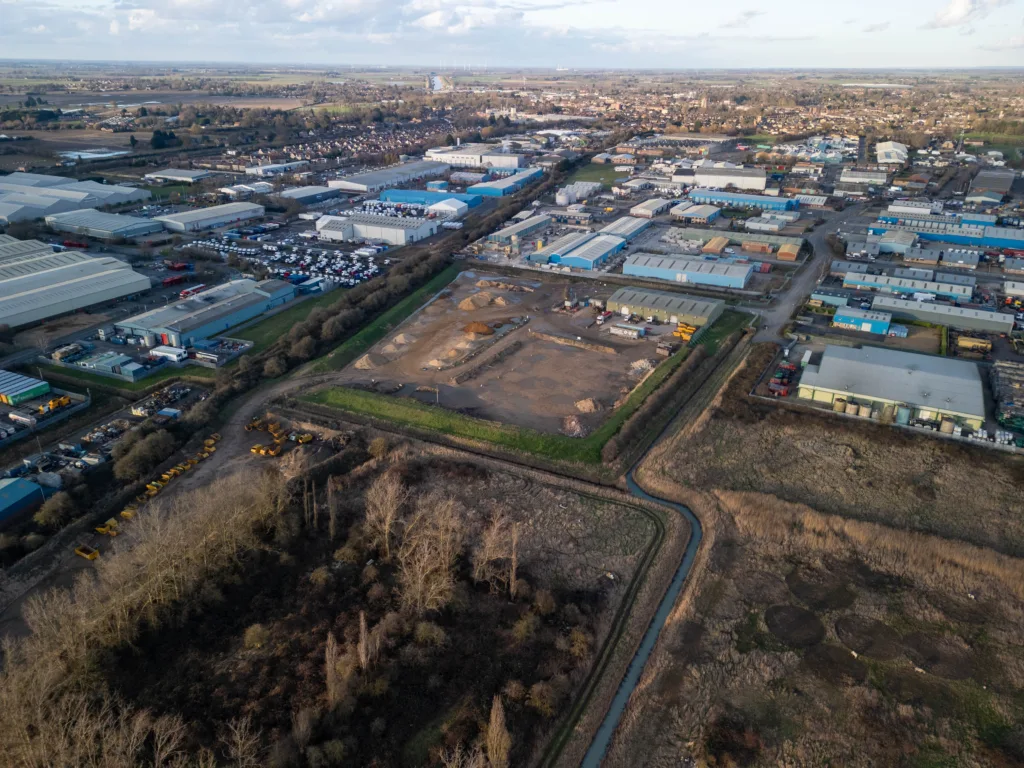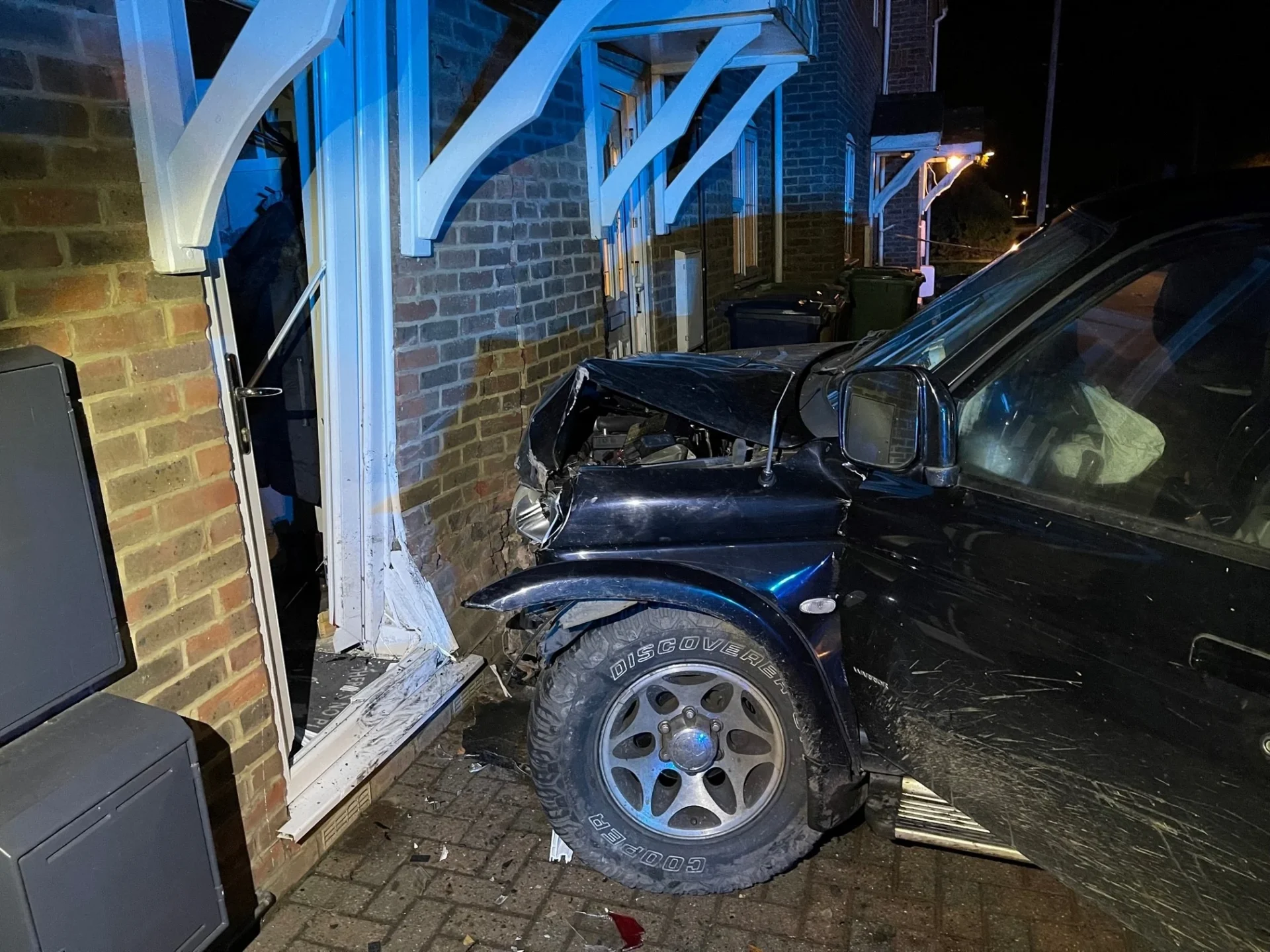Wisbech has fallen. Not my words but those from one of many hundreds of comments on Facebook groups in and around this Fenland market town.
It’s also the town where more than 70 per cent of the population voted ‘leave’ in the 2016 referendum.
And where, just two years later, the town council felt so moved by lack of progress they wrote to prime minister Theresa May to encourage her to deliver “the proper Brexit for which local people voted”.
Poles, Latvians, and Lithuanians make up a sizeable portion of the estimated 10,000 of the town’s 40,000 residents and there was no widespread call for them to leave but the general view of ‘enough is enough’ would probably be a reasonable reflection of community feeling.
But in late 2022 the mood in Wisbech is far from relaxed and a decision to house asylum seekers at the historic Rose and Crown hotel has caused an outcry.


Cllr Chris Boden and Cllr Sam Hoy agree with council officers that Fenland does not contain the community support networks seen in cities such as Peterborough or Cambridge to provide social support for asylum seekers.
Struggling to cope with the rising number of those crossing the Channel to get here, the Government is awarding contracts at an escalating rate to Serco to block book hotels to house them.
It can hardly have surprised local councillors this was on the cards – the hotel has for months thrown out clues that “something” might be afoot.
New owners closed the restaurant, shut the bars on religious grounds, and the vigorous activity one might have expected of a town centre hotel, failed to materialise.
Until one recent Friday. And that was when 21 asylum seekers suddenly arrived.
Wisbech councillor Steve Tierney says “to the best of my knowledge they are not Albanians. They are Eritreans”.
And agreeing the hotel is now accommodating 21 of them, he added that “there were 26, but five have absconded, I believe”.
That aside the hostility towards the asylum seekers is ingrained, often scurrilous and invites scaremongering on a quasi-industrial scale.
Comments like “I moved from Essex to get away from this s**t” to “I feel like the plague is following me” are all too commonplace.
Cllr Tierney has been vocal both on social media and in press releases from Fenland District Council.
On social media he says: “We lost the court case to stop the asylum seekers being put here.
“This is bad news for our town, and we have done everything we can to try and stop it.
“This is a Conservative government, and I am a Conservative councillor. I never imagined having to take our own government to court and I truly regret that we had to do it and that we did not have the outcome we needed.
“I am absolutely gutted, and I am very sorry”.

He also adds he is “furious with the Government for doing this to us. I will be making this very clear to them.
“Labour and the Lib Dems are even more keen on immigration. A Labour Government will throw the doors so wide; we will never get them closed.”
Cllr Sam Hoy is the portfolio holder for housing and points out that “the problem is that not everyone that comes here is fleeing war
“I think people try to be generous and forgiving but it is hard when people are struggling to pay their own bills and choosing between heating or eating- to see other people being put up in hotels and given three meals a day”.
Cllr Hoy responded to one comment on social media by pointing out that Serco “rushed them in that night – we all saw on Facebook that it had closed.
“We weren’t allowed to talk about it whilst the case was ongoing as we were told public comments could jeopardise the outcome
Another local Conservative councillor Andrew Lynn, and former mayor, said: “It was never going to be an easy challenge; this government is the worst in my lifetime.”
Fenland District Council Leader, Cllr Chris Boden, said: “We remain deeply concerned about the housing of asylum seekers there.
“There has been no consideration of the potential risks these vulnerable people will be facing or the significant amount of support they will need.”
Cllr Tierney, district councillor for Medworth ward, Wisbech, offered a more detailed explanation of the sequence of events.
In a statement released through Fenland Council he said: “We learnt of the Rose and Crown’s closure on 4th November and contacted Serco who confirmed our concerns, asylum seekers were to be placed.
“We immediately took legal action and proceedings began. Sadly, Serco placed some asylum seekers into the hotel that evening and 21 individuals are currently in residence.
“We had hoped the injunction would have made Serco find alternative accommodation, but the judge ruled otherwise.”
In the same statement Cllr Hoy says: “Our case was materially different to that of other councils who had previously been unsuccessful.
“Other councils had a month’s notice, and we received no notice at all.
“Furthermore, we know, and Serco had already recognised, that Wisbech is an inappropriate place to house asylum seekers.”
Cllr Hoy said this was “because of the exceptional and recognised problems in the area, including illegal gangmasters, human trafficking and modern-day slavery.
“We were also concerned about the effect on availability of local services and potential issues of social cohesion”.
But

In response to my tweet on Sunday he responded: “There is a multi-agency response in place to provide support to these individuals.
“This includes the Home Office and Serco, the NHS, various Cambridgeshire County Council teams, public health, Cambridgeshire police and Fenland District Council.”
I asked him to consider whether it should be someone’s responsibility to share with communities what this means in practice.
“And we should know more about how communities can support these new arrivals,” I tweeted.
“It’s not rocket science.”
Mr Moir responded: “Thanks John, fair points. I’ll pass that on to our officers involved in supporting the coordination of these efforts.”
During court proceedings Fenland Council had argued the hotel had been turned into a hostel – and so therefore was in breach of planning permission.
But that objection was swept aside.
Mr Justice Holgate said he had studied the council’s objections but concluded that “the application for an interim injunction should be refused”.
The council’s lawyers had used terms such as “significant deprivation”, “organised crime” and a “history of migrant exploitation” as reasons why they felt Serco should be denied a contract to house asylum seekers at the hotel.
Fenland Council debated the possibility of the area being asked to take asylum seekers at the beginning of September.
Deputy council leader Jan French said that it was “very worrying if we are forced to take asylum seekers in Fenland”.
She said there was a great shortage of housing “and we need to be looking after our own people first”.
But Cllr Boden said that the government was considering a full dispersal to all parts of the UK.
“So long as you have 1,000 illegal immigrants coming across the channel on a daily basis, we will be expected to take two every single day,” he warned.
The council agreed in September to firstly “estimate the risks to FDC “inherent in the asylum policy and secondly to make representations to MP Steve Barclay.
Officers said Fenland does not contain the community support networks seen in cities such as Peterborough or Cambridge to provide social support for asylum seekers.
“Fenland’s sub-standard and expensive public transport system would make access to such support networks very difficult if not impossible for asylum seekers,” the report said.
Cabinet accepted officers’ recommendation that “Fenland District Council does not support the Asylum Seeker Dispersal Scheme.
“Until and unless the government, and Serco, take into account the appropriateness of the locations where asylum seekers would be placed, the scheme remains fundamentally flawed and will be unsuccessful.”
Pressure on the government, a flood of new arrivals and public anger over conditions at Manston asylum seekers arrival centre, saw a change in policy.
And the reason hotels up and down the land have become home to those now awaiting processing and decisions on their asylum claims.
Cllr Boden was in no doubt there were many things the government could do including “getting the border sorted out and taking stronger action to deter and return people”.
Processing needed to speed up and “to deport those with no right to be here” he told the September Cabinet meeting.



























